Playing a rubbish cop in Disco Elysium is better than any RPG power fantasy
Learn from your mistakes.
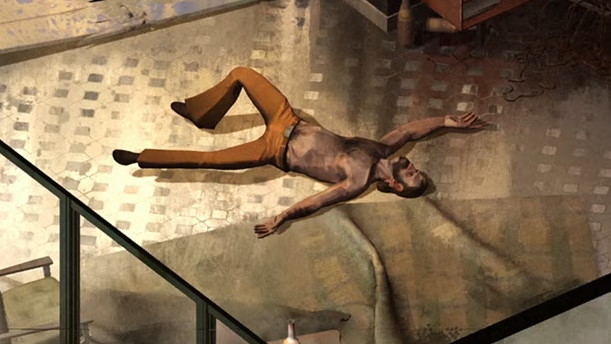
RPGs are almost always power fantasies. Whether you're a halfling necromancer or a spacefaring Jack Bauer, you're inevitably destined for great things. Even if you're playing an utter bastard, there's always a bigger bastard to defeat—and defeat them you will, probably saving the whole world in the process. Another job well done. Disco Elysium says, "Fuck that," and it's all the better for it.
My playthrough of Disco Elysium ended with an acknowledgement of all my detective's flaws. There was no victory—no evil destroyed, no boss defeated. I solved a case, I guess, but after 30 hours of introspection, the crime I was ostensibly solving had taken a backseat to the critique of the person I had decided to be. This wasn't done through a karma system or some other kind of arbitrary meter, thank goodness, but through an intervention and one last opportunity to shape a character I'd grown to know so well.
It's a roleplaying challenge, not big combat encounter or a final puzzle you need to solve. And it's the last in a long string of them, each chipping away at the amorphous character you start out playing until there's a well-defined detective left over; albeit a slightly cracked one.
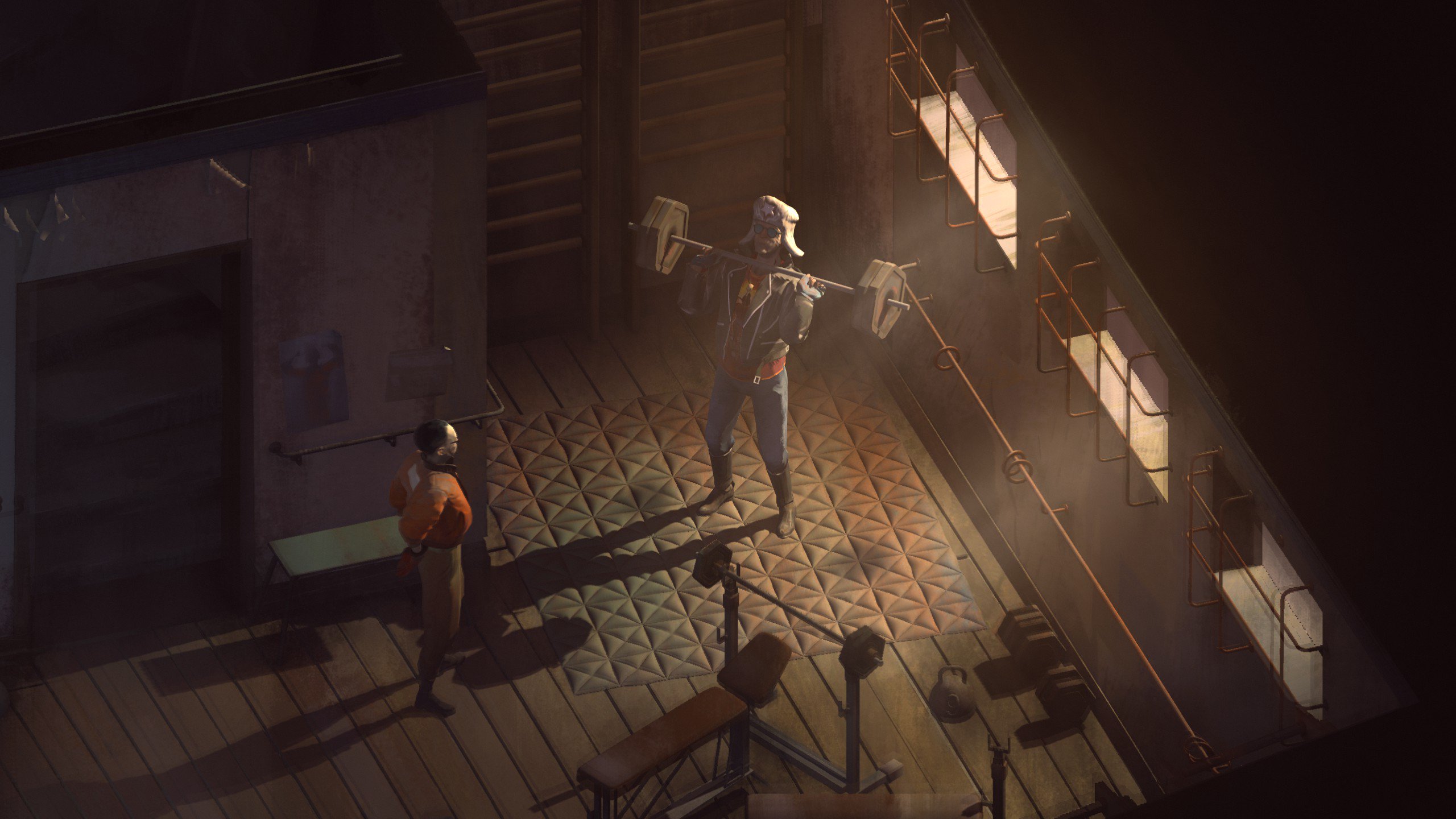
Disco Elysium tracks the choices you make so it can lead you down new paths. Pretty early on, it clocked that I was making choices that suggested I had some left-leaning proclivities. I already knew the game allowed you to become a zealous supporter of communism, and I thoroughly embraced all the tropes. I denounced capitalism at every juncture and encouraged everyone I met to join me on my crusade against its corrupting influence, as you do. It was a lot of fun. Whenever I had to stifle my cries of "Eat the rich!" in the real world, Disco Elysium was always there to let me blow off some steam.
It's not a typical RPG power fantasy, but it's still empowering. The additional dialogue options gave me a certainty that I'd lacked when I was still figuring out who my amnesiac detective was, and mechanically they offered new ways to overcome obstacles. Communism opened a lot of doors, but it eventually became clear that Disco Elysium wasn't interested in confirming my biases.
Disco Elysium takes a centrist approach in that it lets you be anything from a hardline communist, an out and proud fascist or an off-his-rocker psychic detective, but rather than trying to make them all equal, it challenges everything. Ultimately it probably ends up on the left side of the political spectrum, but that doesn't mean it goes easy on anyone.
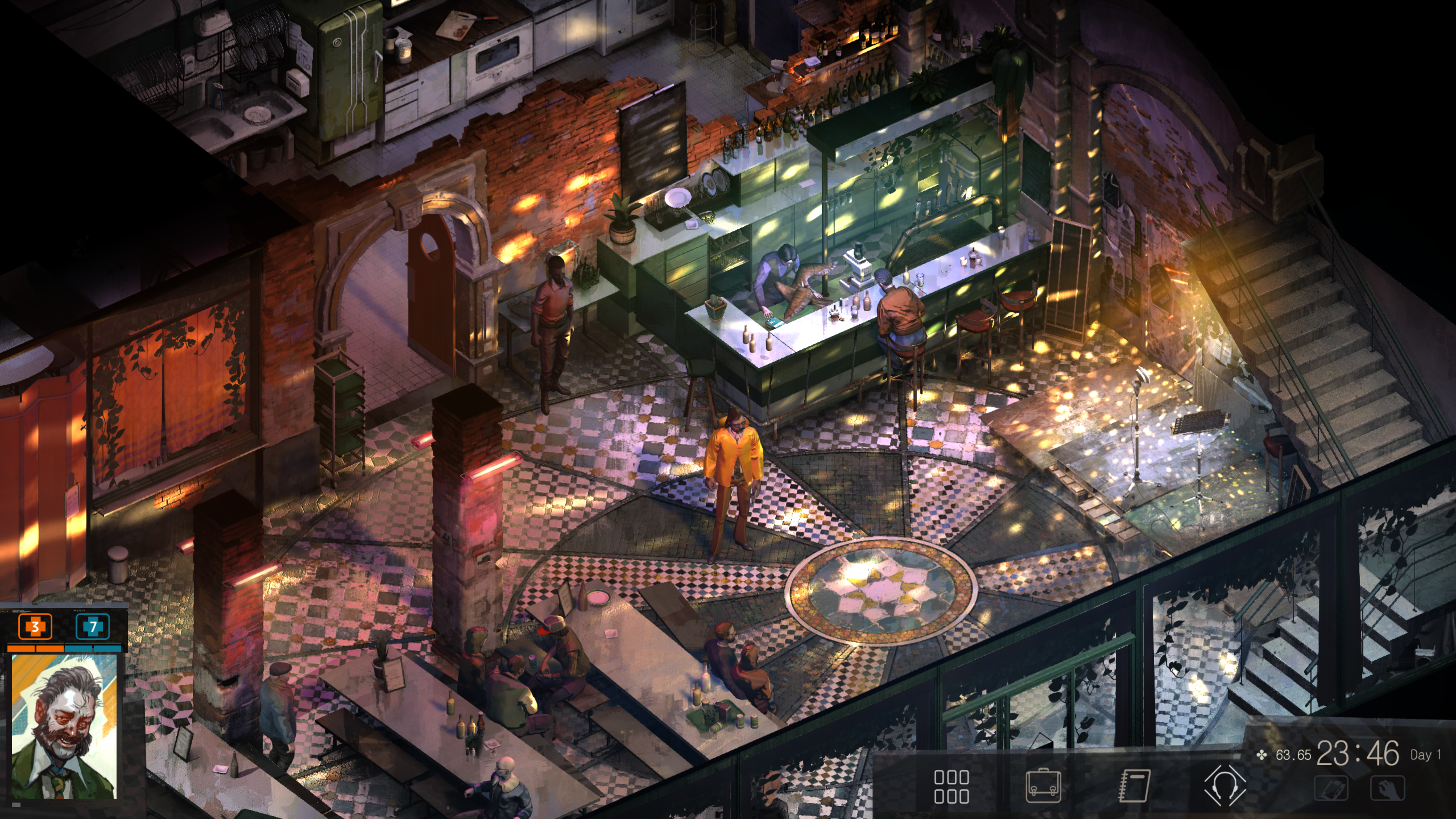
At times, it comes close to the nihilism of South Park, though thankfully without the smugness. When people believe in something in Disco Elysium, they get exploited. By corporations, mob bosses, revolutionaries—there are plenty of vultures, and some of them are even sympathetic. If you decide to be Communist Cop, you'll need to wrestle with the role of the union, which in Revachol ostensibly looks out for workers but is also run by a crooked businessman, and then there's the spectre of the failed revolution with its victims on both sides.
Keep up to date with the most important stories and the best deals, as picked by the PC Gamer team.
Revachol has a complicated history. It went through a bloody revolution, is currently part of a vaguely tyrannical centrist regime, and boasts more than one ethnic supremacist movement. You will inevitably find characters and have conversations that make you deeply uncomfortable. I felt compelled to play it because it's simply one of the best RPGs around, but I stopped playing for a week because it just bummed me out.
There's an NPC you can chat to who has some extremely unpleasant things to say about your partner, Kim Kitsuragi, and if that rightly doesn't sit well with you, there's a good chance that you'll end up in a completely pointless argument with a grotesque racist that goes nowhere. It's 25 percent of the interactions I've had online, and it's far from the only stressful chat. It's maybe a bit too real. As the aforementioned halfling necromancer, I'd probably be able to make the racist change his ways and give away all his money to a refugee charity, but in Disco Elysium I just got to tell him to go fuck himself. It was at least briefly cathartic.
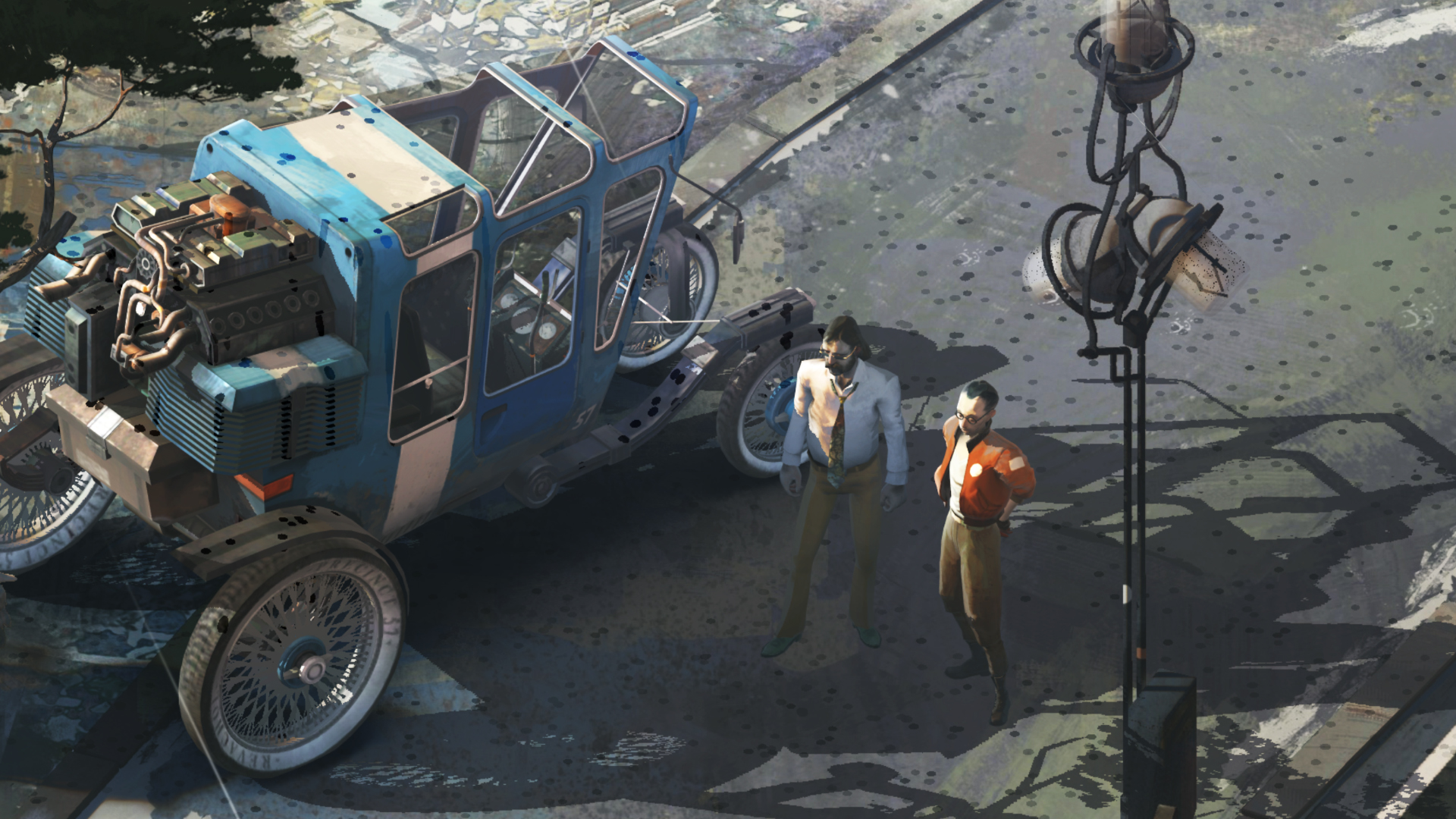
I seethed for ages after it. And that guy just got to keep standing in that spot, being an arsehole. He wasn't a nemesis I would eventually be able to chop to pieces 30 hours later. He was just some stupid racist dude who wasn't remotely important. So many modern RPGs are about influencing people—thanks, BioWare—but here that's a lot less frequent. Sure, you can convince people to see things your way or lie to them, but fundamentally everyone is pretty set in their ways.
This is surprisingly fertile ground for roleplaying. Instead of the game affirming that I was the most important person in the universe—which I already know to be true—I had to find closure myself. I had to dwell on it. I thought about the argument, and how Kim had tried to stay out of it and had even asked me to just ignore it, and how I didn't listen. I challenged the racist because, frankly, it felt really good to tell the guy where he could stick his rhetoric, but in the end he remained a racist, I was still angry, and Kim was—against his will—at the centre of it. Where another RPG might merrily let me act the saviour and never ask any questions, Disco Elysium made me confront why I was making these decisions. You might not be able to make other people change, but you can still grow.
Despite being a seemingly throwaway conversation, I reconsidered the relationship between Kim and his forgetful partner, and it grounded me in the world in a way that no big moral decision in something like Mass Effect ever could. I'm never going to be able to relate to Commander Shepard deciding the fate of an entire species, but I've definitely been an inconsiderate, shitty friend.
I kept cocking up, of course. Sometimes it was a failed roll, but often it was just me making a bad call. I got seduced, tricked and used as a pawn by both the union and a corporation. Instead of a litany of heroic deeds, I collected flaws, delusions, obsessions and weird quirks—a person, essentially. On those rare occasions where things went right and Kim would congratulate me on a job well done, it was like winning the lottery. When you're not the chosen one, those little victories really matter. Even gloomy Geralt gets to save the day, no matter what, but there's no room for destiny in Disco Elysium. Little breaks in the case, some friendly banter with Kim and a hug from a stranger are moments to be treasured.
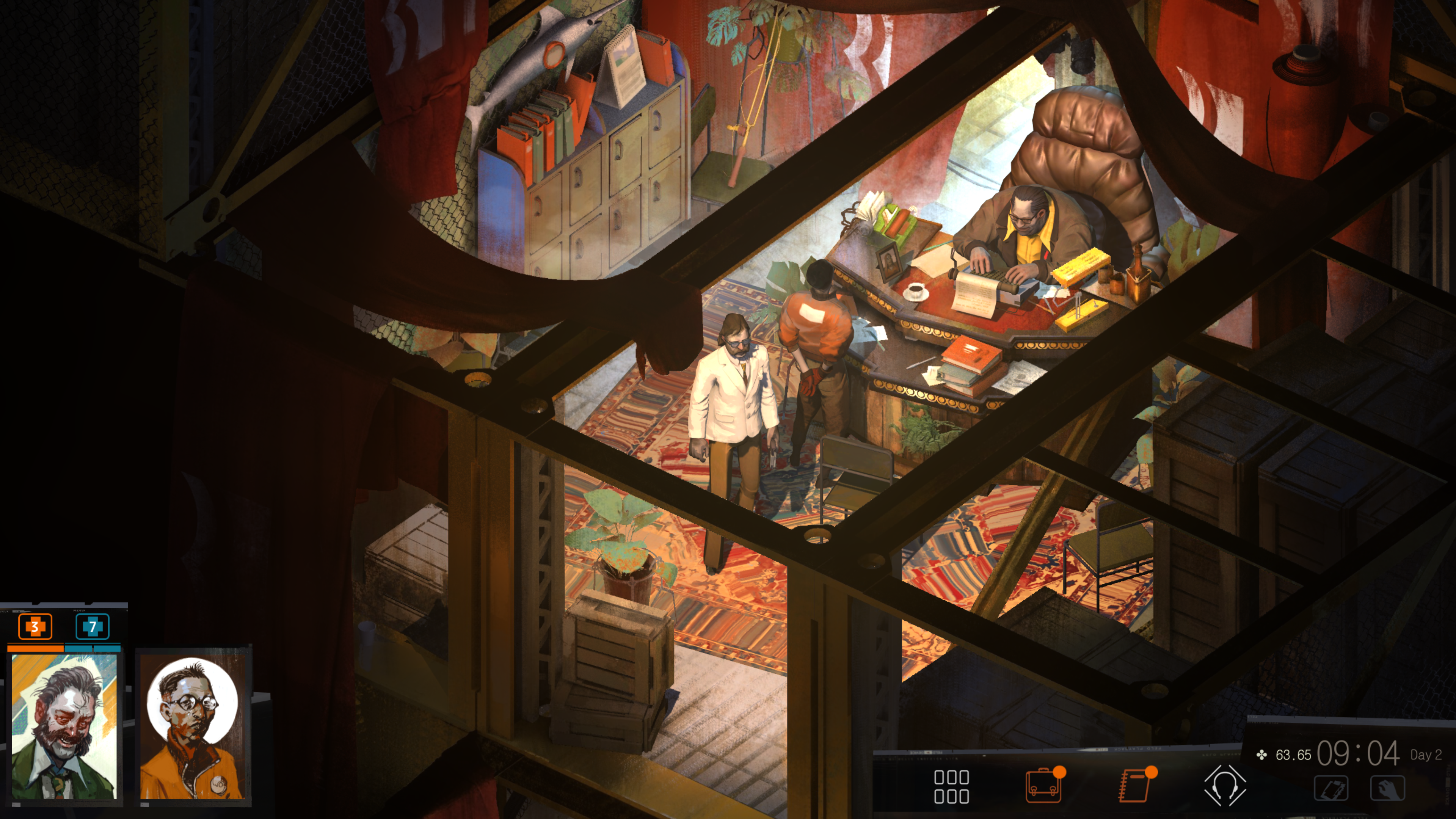
Geralt's an interesting case, however, because despite sporting lots of fantasy RPG tropes, The Witcher 3 doesn't have a conventional fantasy RPG protagonist. Geralt's a pretty crap surrogate dad, a bit of a boozer, has loads of problems with intimacy and is probably riddled with STDs. He's good at slaying monsters and not a bad lay, but he's a deeply flawed guy. Those imperfections, along with his other personality quirks, are what make him such a compelling protagonist and roleplaying proposition. It simply gives you more to work with. Blank slates are great if you're theorycrafting and faffing around with builds, but for a story-driven RPG there needs to be some kind of foundation.
It would be a nightmare if every RPG was as critical and introspective as Disco Elysium. Sometimes you need pure escapism, and exploring the mind of an unhinged cop doesn't make for a chill weekend of gaming. But every RPG could still benefit from making its protagonist more vulnerable. As it stands, most of them have the inexhaustible confidence of someone who's already read to the end of the script.
Without a bit of self-doubt or fallibility, there aren't opportunities for character growth, or at least not ones that are earned. Instead, personalities are divided into good and evil, paragon and renegade, neither of which contain 'wrong' choices. Most RPGs seem to be allergic to letting players make bad decisions. The ultimate freedom in roleplaying is the ability to make utterly catastrophic mistakes and just kinda roll with them, and it's usually the best source of anecdotes, but that's not something we get to do very often outside of tabletop games. Every now and again, it would just be nice to play a fuck-up.

Fraser is the UK online editor and has actually met The Internet in person. With over a decade of experience, he's been around the block a few times, serving as a freelancer, news editor and prolific reviewer. Strategy games have been a 30-year-long obsession, from tiny RTSs to sprawling political sims, and he never turns down the chance to rave about Total War or Crusader Kings. He's also been known to set up shop in the latest MMO and likes to wind down with an endlessly deep, systemic RPG. These days, when he's not editing, he can usually be found writing features that are 1,000 words too long or talking about his dog.

